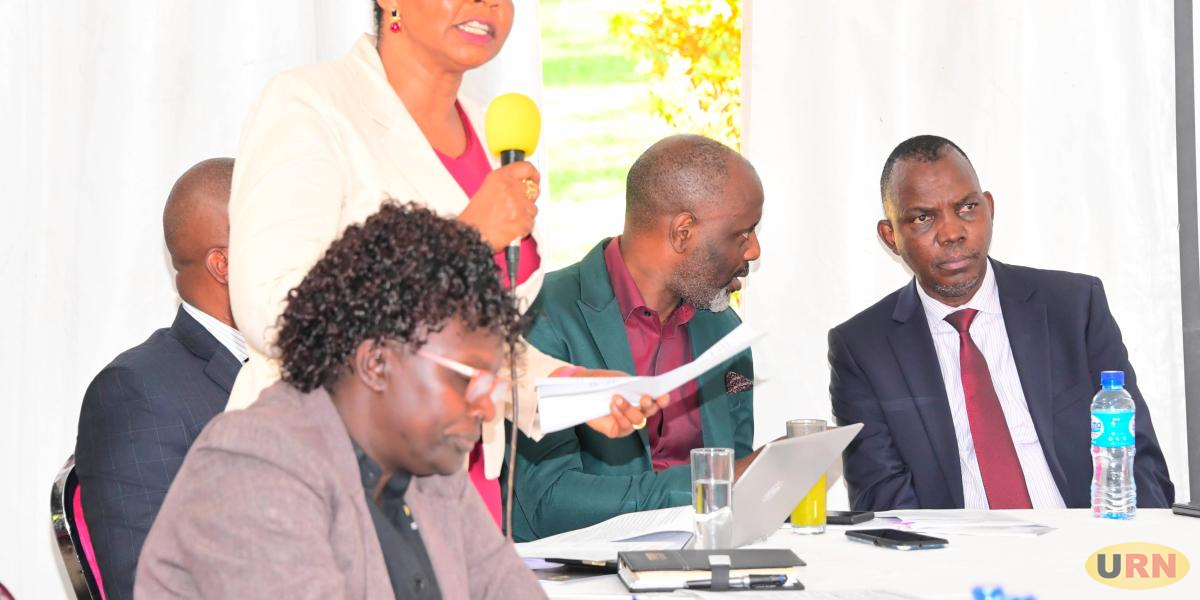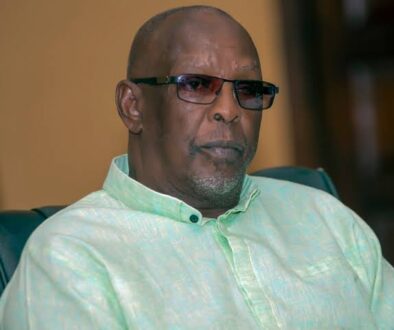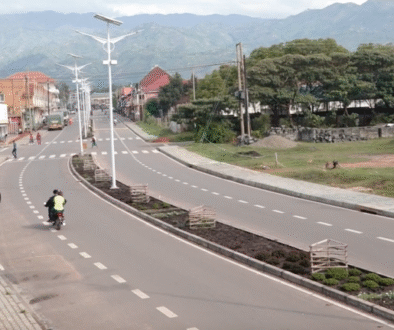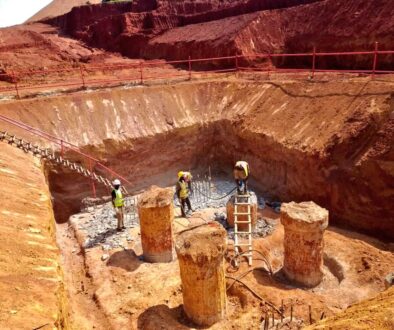Col Edith Nakalema challenges miners

By Our reporter
KAMPALA – The Head of the State House Investors Protection Unit (SHIPU), Col. Edith Nakalema has urged miners to protect and promote the sector in order for the country’s economic growth, industrialization, job creation and increased foreign exchange.
“Today’s meeting is a pivotal moment for Uganda’s mining sector. Together, we have the opportunity to address the challenges, seize the opportunities, and set the stage for responsible mineral sourcing practices and investor protection that align with international standards,” Col. Nakalema noted.
The Head of SHIPU made the remarks on Wednesday 30th October 2024 during a consultative meeting on responsible mineral sourcing and investor protection held at SHIPU offices in Kampala. The meeting was attended by senior government officials and officials from the private sector.
According to Col. Nakalema, SHIPU has been receiving numerous complaints of fraud and other challenges from investors in the mining sector and such consultative meetings are one of the collective resolve and determination that can help to deal with the pertinent issues.
“Considering our role as SHIPU, we are inspired by your goodwill to discuss ways of providing lasting solutions for better utilisation of our mineral resources,” Col. Nakalema expounded.
She also reminded the meeting attendees that the mission of SHIPU is to collaboratively coordinate stakeholders for a secure investment landscape in Uganda in areas such as the mining industry.
“H.E. the President established SHIPU and tasked us to protect both domestic and foreign investors from unnecessary delays and extortion by wrong elements/ fraudsters. The unit has registered several complaints relating to fraud in gold trade and we continue to coordinate with anti-corruption agencies in addressing these concerns.”
On the other hand, Col. Nakalema proposed that the government should incentivize responsible mineral sourcing practices and put up measures to protect investors in the mining sector as well as elevate the role of Artisanal and Small-Scale Mining (ASM) while ensuring that it aligns with national development goals.
“I appeal to each one of us to commit to this cause and work together to protect Uganda's reputation as a secure and thriving investment destination,” she asserted.
“By implementing the solutions discussed today, we can turn challenges into big opportunities that serve the interests of all Ugandans.”
Furthermore, Col. Nakalema suggested that a technical steering committee should be put in place to help in streamlining the mining sector through guidance and technical expertise.
The Director of Economic Affairs, Ministry of Finance, Planning and Economic Development, Mr. Moses Kaggwa revealed that the government is looking forward to growing Uganda’s economy by tenfold of USD 500 billion in the next 10- 15 years.
He also highlighted the areas which they think will propel this growth.
“We have called them ATMS which stands for Agro-industrialisation, Tourism, Minerals and Gas and Science/ Knowledge Economy,” Mr. Kaggwa said.
The Director also urged that minerals excluding oil and gas are more important and if a country is well organised, it can make more money from the sector.
“With our assessment we have done with the National Planning Authority (NPA), the ATMS will take centre stage in steering the development of Uganda.”
Additionally, Mr. Kaggwa said that the government has already formed the Uganda Mining Company (not yet operational) to act as the country’s investment arm in the mining sector.
“A law has been passed to ensure that there is an orderly exploitation of our resources,” he assured.
On his part, the Executive Director of the National Planning Authority, Dr. Joseph Muvawala advised that if Uganda is to achieve ten-fold economic growth, the government should do things differently.
“It means we must add value to our products, have technology and a leading plan. We should sit down together and discuss. If you want faster growth, we must also focus on minerals,” Dr. Muvawala said.
“Unfortunately, from where I sit, the minerals sector is the most neglected one. We have over-prioritised petroleum. It is the most important sector but also the most challenging. The sector is going to be critical for us and every important matter discussed here we are going to lift it to the plan,” he added.
On the other hand, the Commissioner of Mining – Ministry of Energy and Mineral Development, Ms. Agnes Alaba said Uganda has a rich mineral potential and the government must put in more effort in the exploration to determine the reserves the country has.
She noted that as the Ministry, they are prioritising policies, regulations and laws to regulate the mining sector.
Prof. Gerald Karyeija, a Government Policy Analyst said the government should set up a mining school to train those involved in technical skills and expertise.
He also urged that the benefits of the sector should be collective whereby they benefit all Ugandans not just a selected few.
“Ugandans want their lives changed and jobs increased. No one should be left behind in terms of benefit, especially those at the bottom of the poverty line,” Prof. Karyeija said.
“Mineral wealth should be public wealth but not personal wealth whereby it benefits all Ugandan citizens. Ugandans need transparency and accountability in the sector.”
CP James Ruhweza, the Deputy Director of Operations Services – Uganda Police said police are supporting all the operations in the mining sector and assured stakeholders of continued cooperation to protect the sector.
ACP Tusingirwe Julius Caesar, Commander Police Mineral Protection Unit also noted with concern the numerous fraud cases especially in gold trade reported to police.
He however, assured that the cases are being handled and some are already in the courts of law.
“If we work together, we can deal with these compelling issues in the mining sector,” he said.
The Special Guest, Mr. Fred Sapong, the CEO of Oheneba Poku Foundation-Ghana advised that Uganda should take a leaf from countries like Ghana which have strict regulations for the mining sector.
He said such regulations have helped Ghana to handsomely benefit from the sector.
“In Ghana, you cannot buy gold in cash; a trader of gold is registered by the government. Transactions are through the banks, no black markets.
Everyone in the value chain is covered in the system,” he said. Ms. Patricia Gulyetonda, Bank of Uganda Reserves and Investment Management Head, assured stakeholders that the Central Bank is very dedicated to working with them to ensure that the sector is regulated for more gains.


